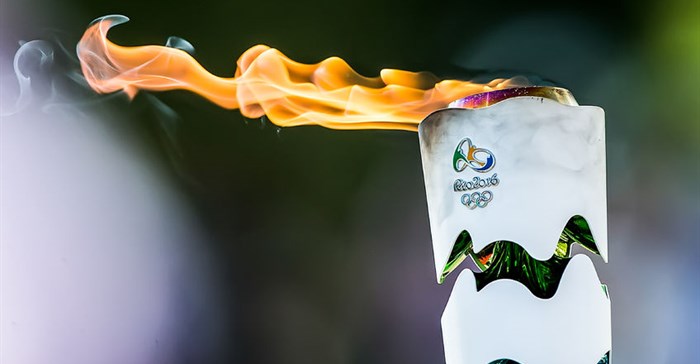
Top stories






More news

Marketing & Media
Ads are coming to AI. Does that really have to be such a bad thing?














The Olympic Games offer excellent branding opportunities for companies. However, the ironclad sponsorship and advertising restrictions from the International Olympic Committee (IOC) have left many companies who are not official sponsors scratching their heads about how to leverage the opportunity.
Come August the world will have its attention glued to the media as they follow 306 sporting events over 19 days in Rio de Janeiro. Ad revenue for the games is significant. In March, NBC announced that it had already surpassed the $1bn mark for national ad sales for the Rio Olympics, four months ahead of the same achievement in 2012. The figures included national broadcast, cable and digital sales.

This year advertisers will need to pay close attention to their mobile strategy. According to GlobaWebIndex data, 82% of the more than 45,000 people surveyed across 34 regions, own a smartphone. More importantly this audience averages 1 hour and 51 minutes of mobile web usage per day – a third of their total online time.
Even more telling is that a fifth of those surveyed are already streaming sports via their phones. This, in conjunction with dual screening, where almost 60% of the surveyed group said they would use their phone as a second device while watching the games to track social media and news, shows just how important a mobile ad strategy will be this year.
Companies wanting to make the most of the event will need to look for ways which allow them to stay on the right side of the IOC and their legal team. While the committee has relaxed some of its draconian restrictions from 2012, there is still a blackout on any ads featuring Olympic athletes from any company other than the official sponsors (or those who have received IOC waivers) from 27 July to 24 August. The Games run from 5 to 21 August.
While this can add complexities for companies, the beauty of the significant uptick in digital media consumption means companies can still make use of the power of search, social and display marketing.
The industries most likely to benefit from the Games would be travel and tourism. People watching the sports will naturally be interested in visiting Rio and travel companies could make use of this time to develop travel specials and packages. The Brazilian Tourism Institute is predicting 380,000 international visitors during the Games. As South Africa saw when they hosted the 2010 World Cup, many of the visitors returned to the host country after the event with friends and family. The same applied to Brazil, which reported a significant uptick in revenue from international tourism after it hosted the World Cup in 2014.
There are great opportunities for players across different industries to capitalise on this event if they don’t limit their approach to just sport-related content. The Olympics is a cultural event that blends music, art, language, food and other cultural elements with the spirit of competition.
The key to making the Olympics (and other mega events) count is having a solid branding narrative. You will also need a three-part strategy which includes a plan of action for pre- during and post-event.
Time sensitive promotions and competitions are a simple but effect way of capitalising on the increasing interest as the Olympics approach, as well as means to acquire new customers and generate revenue.
Making use of the dual streaming trend could be a strategic win for companies in this regard. The appeal of this is that companies can run short bursts (as little as an hour at a time) of targeted ads. We are expecting to see the bids surrounding high profile events such as the men’s 100m, attract very high bids.
While this may dissuade companies with smaller budgets, companies in all sectors can make use of the fact that Google is adding more audience-focused targeting to search. Newer products such as Customer Match will allow you to optimise your campaigns by adjusting bids and messaging based on your customers’ user behaviour. Similarly, using Remarketing Lists for Search Ads (RLSA) allows you to reach people who have already visited your site and will deliver value long after the games have ended. Making use of the Doubleclick service will allow brands to serve up targeted ads across media, based on previous interest shown.
Tying your branding to various Olympic sports such as archery, swimming or pentathlon could assist. That said, companies would need to come up with a well thought out keyword strategy which is relevant to their brand.
Building pages around the keyword strategy could generate traffic and allow companies to gather data that could be used to inform future campaigns and remarketing strategies if analysed and segmented appropriately.
Brands should ensure that their digital strategy leverages mobile as much as possible and is integrated with their above-the-line strategy and, most importantly, is not reliant on the last scraps of budget.